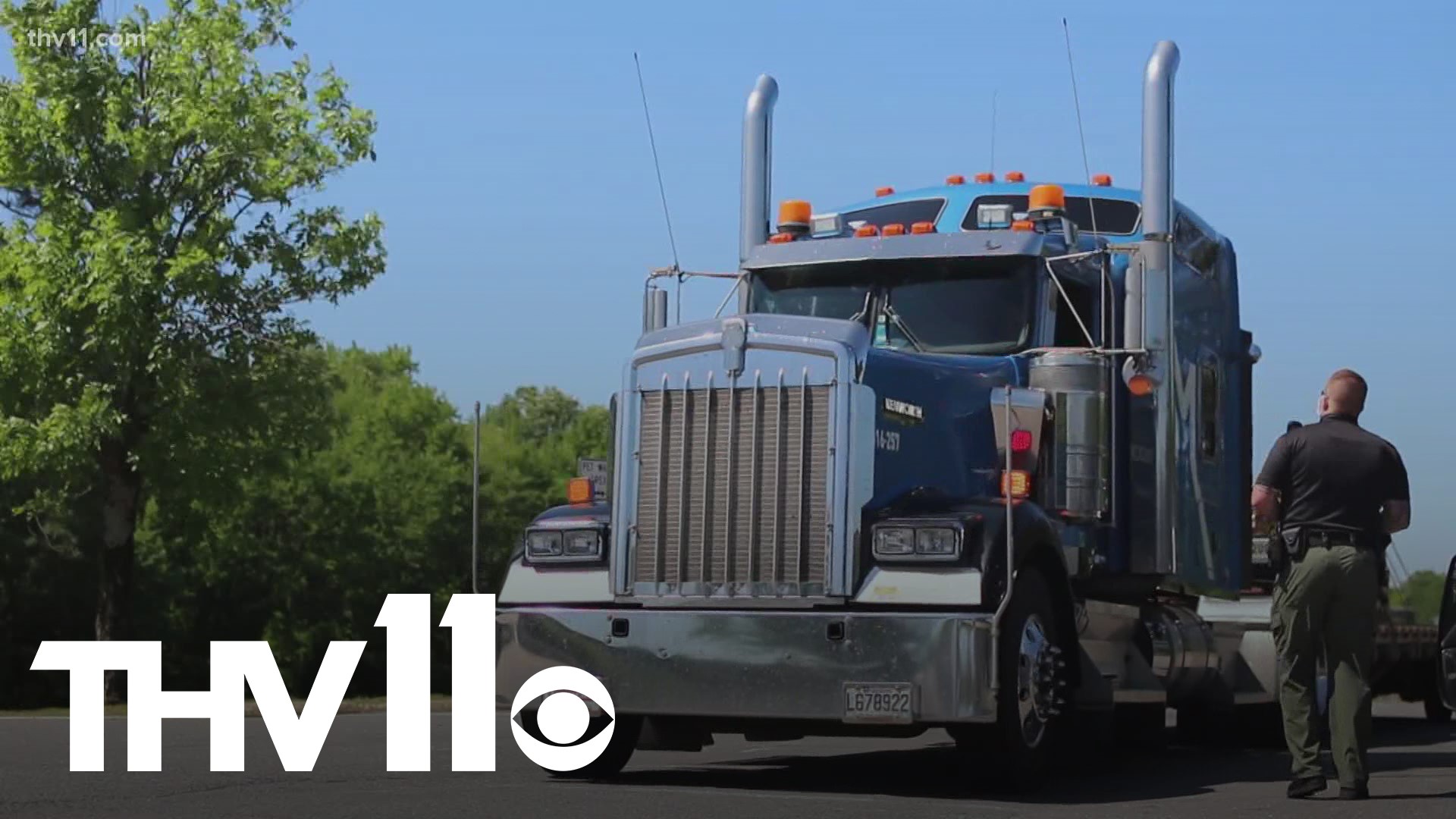LITTLE ROCK, Ark. — It's a problem many industries are experiencing right now, not enough people are wanting to come to work.
For the trucking industry, it's the biggest shortage they've seen in over a decade, and that shortage is creating a domino effect.
Have you heard recently about groceries and gasoline delays or even shortages?
Part of the reason for that is there are simply not enough people willing to get behind the wheel, according to Arkansas Trucking Association President Shannon Newton.
"Our members are really struggling to fill the positions, in order to meet the demands of their customers," she said.
Driver shortages aren't unique to the trucking industry, but Newton said when you mix people getting comfortable on unemployment benefits and the way consumers like to shop now, the impact is even greater.
"We have a lot of things in play to try to make the job more attractive, but the current environment has made that extremely difficult," she said.
According to Newton, the state is down about 2,400 drivers. That's out of a nationwide shortage of 61,000.
"There are not people entering the workforce in that younger demographic at the same rate in which we have people leaving on the other end," she said.
Several companies are increasing incentives to get people to come to work for them.
Malea McElyea, Vice President of Business Development at CalArk Trucking, said the company recently announced a 9% pay increase, sign-on bonus, and a referral bonus of up to $2,500.
Newton said these types of incentives started at the beginning of 2021.
"Trucking companies really foresaw the need that they were going to need to ramp back up their fleets and so those types of initiatives and incentives began to come back in early this year," she said.
Newton describes the "why" behind the shortage as complicated. Anything from more people retiring to the unemployment and stimulus check cushions to other industries success.
"Construction and manufacturing are coming back, so we compete with those types of industries. We're the same labor pool, so that is a constraint," she said.
Whether it's waiting a couple more days for a package or not being able to order your go-to meal at a restaurant, with fewer drivers on the road Newton said every consumer could feel the impact.
"In order for us to enjoy the standard of living that we've all become accustomed to, someone has to get it from where it was made or produced to where you would like to consume it," she said.
It's not just about attracting people to get behind the wheel, though. According to Newton, the industry is also struggling to fill other positions like mechanics, package handlers and truck loaders.

